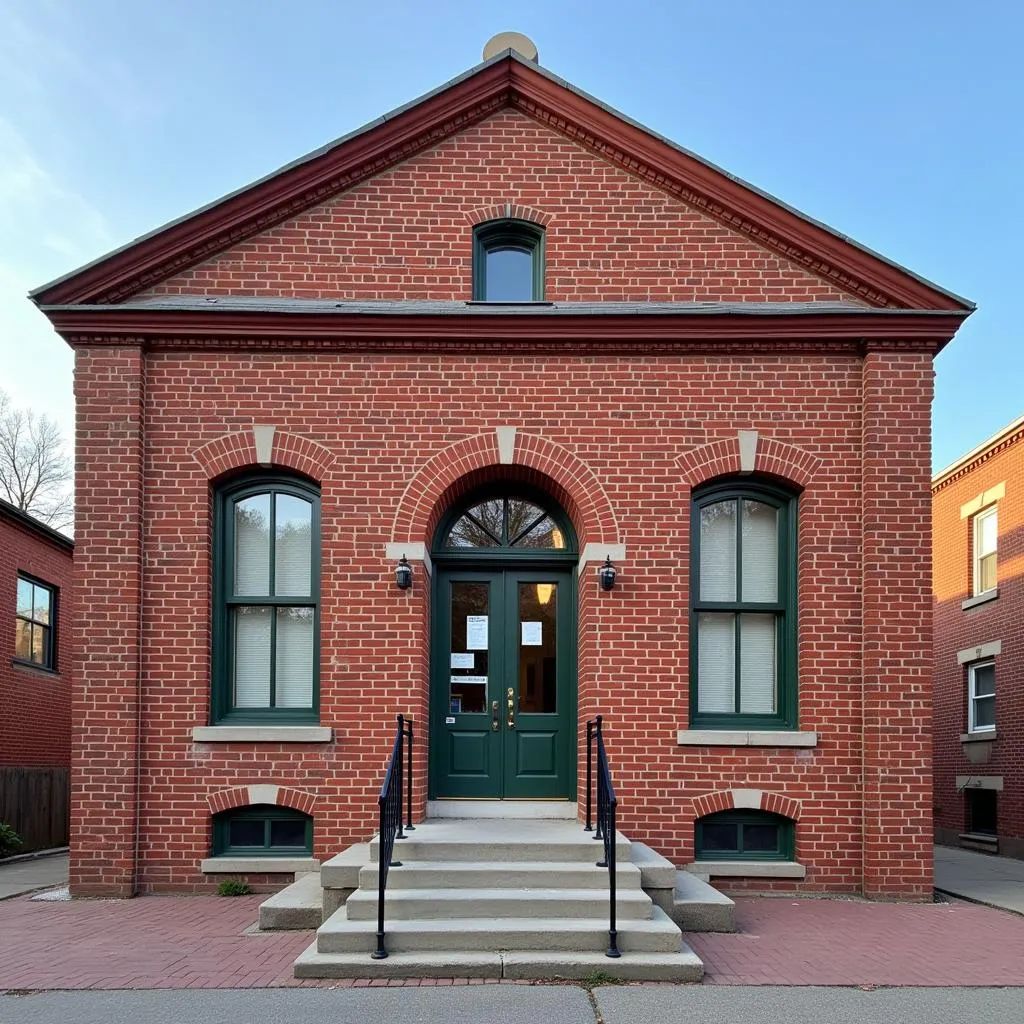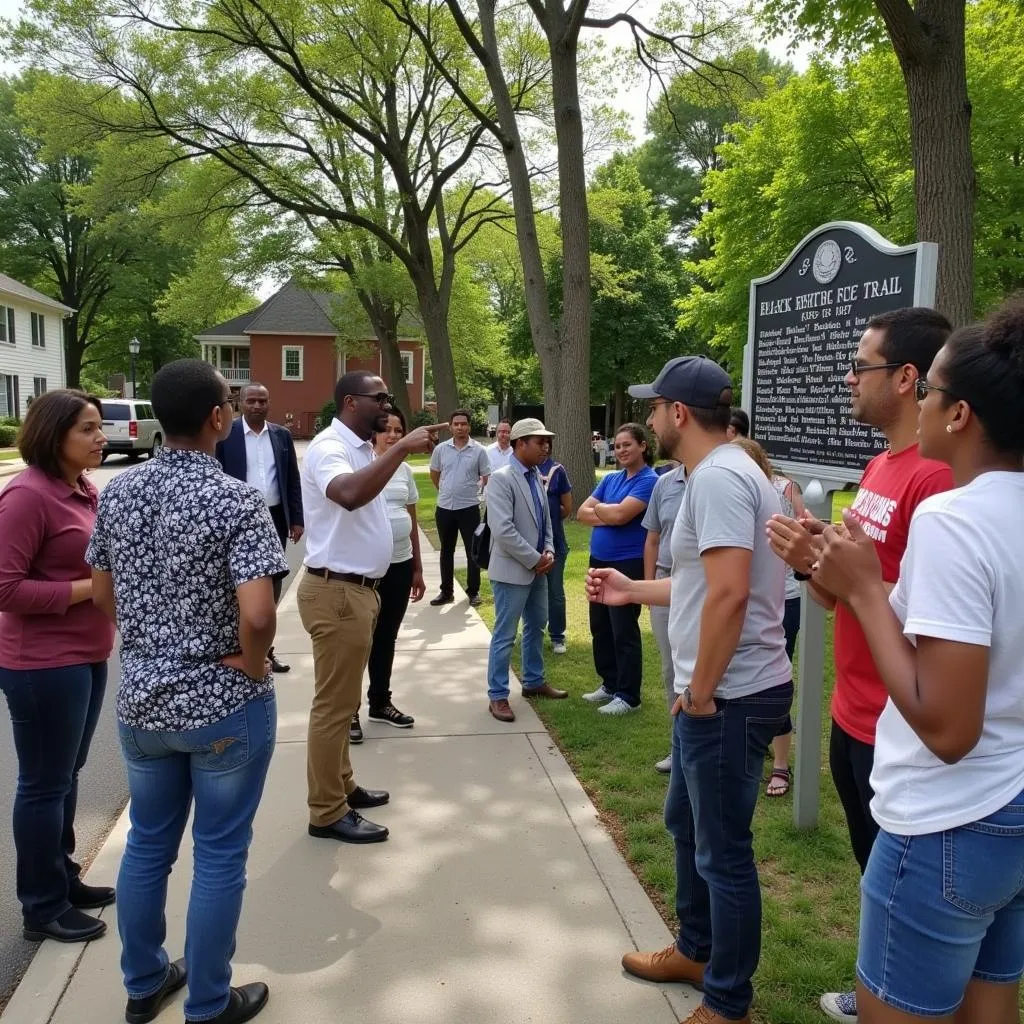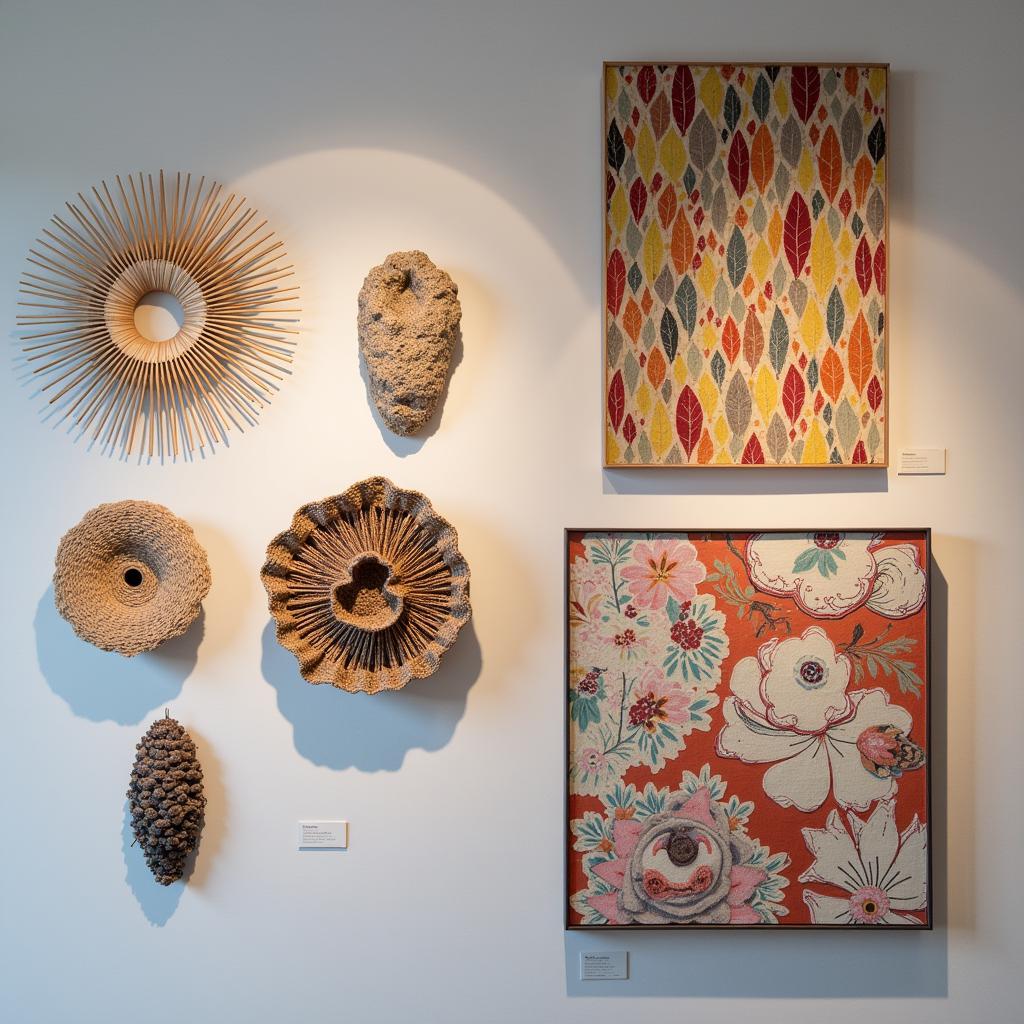Unveiling History: Your Guide to the African American Heritage Trail Boston
The African American Heritage Trail Boston is more than just a walking tour; it’s a journey through centuries of resilience, artistry, and struggle that shaped the fabric of American society. This trail, marked by bronze plaques set into the sidewalk, unveils the often-overlooked narratives of African Americans in Boston, from the city’s earliest days to the present.
Tracing the Footsteps of Freedom: Exploring the Black Heritage Trail
The Black Heritage Trail, a central part of the African American Heritage Trail, winds through Beacon Hill, a neighborhood known for its charming brick sidewalks and gas lamps. This area, once a vibrant center of the abolitionist movement, played a pivotal role in the fight for freedom. ![]() Beacon Hill homes along the Black Heritage Trail As you follow the trail, you’ll encounter schools, churches, and homes that once sheltered those fleeing slavery on the Underground Railroad. Imagine the courage it took for individuals like Lewis and Harriet Hayden, whose former home at 66 Phillips Street served as a refuge for countless individuals seeking freedom.
Beacon Hill homes along the Black Heritage Trail As you follow the trail, you’ll encounter schools, churches, and homes that once sheltered those fleeing slavery on the Underground Railroad. Imagine the courage it took for individuals like Lewis and Harriet Hayden, whose former home at 66 Phillips Street served as a refuge for countless individuals seeking freedom.
Uncovering Untold Stories: Notable Sites on the Trail
The African American Heritage Trail extends beyond Beacon Hill, encompassing sites that speak to the multifaceted experiences of African Americans in Boston. At the African Meeting House, built in 1806 and the oldest standing black church edifice in the United States, you can almost hear the echoes of Frederick Douglass’s powerful speeches advocating for abolition.  The African Meeting House, a beacon of Black activism Just a short walk away, the Abiel Smith School, one of the first public schools for African American children, stands as a testament to the community’s commitment to education and upliftment. Each site along the trail offers a glimpse into the lives, struggles, and triumphs of those who came before us.
The African Meeting House, a beacon of Black activism Just a short walk away, the Abiel Smith School, one of the first public schools for African American children, stands as a testament to the community’s commitment to education and upliftment. Each site along the trail offers a glimpse into the lives, struggles, and triumphs of those who came before us.
Beyond the Trail: Delving Deeper into Boston’s Black History
While the bronze markers provide a tangible connection to the past, there are numerous ways to deepen your understanding of African American history in Boston. The Museum of African American History, located in the heart of Beacon Hill, houses an impressive collection of artifacts, documents, and rotating exhibits that illuminate the Black experience in Boston and beyond.
- Experience the Power of Art: The National Center of Afro-American Artists showcases the works of renowned Black artists, offering a unique lens through which to engage with history and culture.
- Immerse Yourself in Music: The Boston Public Library’s Special Collections houses a vast archive of sheet music, photographs, and recordings that document the rich legacy of Black music in the city.
- Engage with Experts: Guided tours led by knowledgeable historians provide invaluable context and bring the stories of the trail to life.
 A guided tour group exploring the Black Heritage Trail
A guided tour group exploring the Black Heritage Trail
Preserving the Past, Inspiring the Future: The Importance of the Trail
The African American Heritage Trail Boston is a powerful reminder that history is not confined to textbooks—it lives and breathes in the very streets we walk. This trail serves as a testament to the indomitable spirit of African Americans who fought tirelessly for equality and justice. By walking the trail, we honor their legacy and commit ourselves to carrying their torch forward, ensuring that their stories continue to inspire generations to come.
FAQ: Planning Your Visit to the African American Heritage Trail
1. How long does it take to walk the entire African American Heritage Trail?
The Black Heritage Trail, the most well-known section of the African American Heritage Trail, takes approximately 90 minutes to walk at a leisurely pace. However, to fully experience all the sites and museums, it’s best to dedicate an entire day or even a weekend.
2. Are guided tours available for the African American Heritage Trail?
Yes, several organizations offer guided tours of the trail, providing historical context and enriching the experience.
3. Is the African American Heritage Trail accessible for visitors with disabilities?
The trail’s accessibility varies depending on the specific section. Some areas have cobblestone streets, which may pose challenges for wheelchairs or strollers. It’s recommended to check accessibility information for specific sites in advance.
4. What is the best time of year to visit the African American Heritage Trail?
The trail is open year-round; however, spring and fall offer the most pleasant weather for walking.
5. Are there restrooms available along the African American Heritage Trail?
Public restrooms are available at various locations along the trail, including museums, visitor centers, and some businesses.
6. Is there a fee to access the African American Heritage Trail?
The trail itself is free to explore; however, some museums and attractions may have admission fees.
7. Are there dining options near the African American Heritage Trail?
Yes, Beacon Hill and the surrounding areas offer a wide range of dining options, from casual cafes to upscale restaurants.
For additional information or assistance in planning your visit, please don’t hesitate to contact us. Our team is dedicated to helping you create a meaningful and memorable experience.


